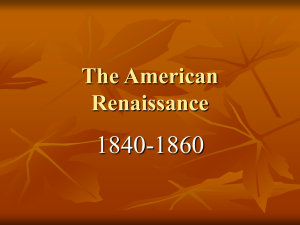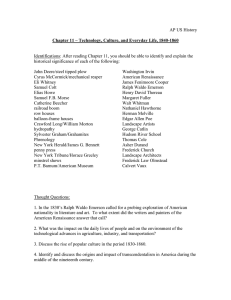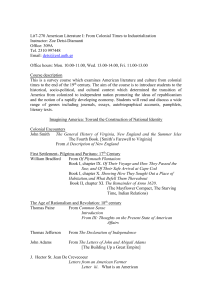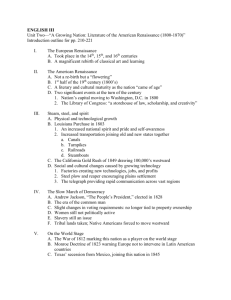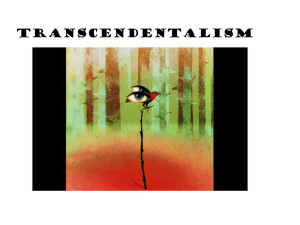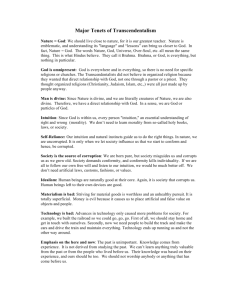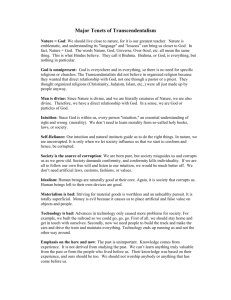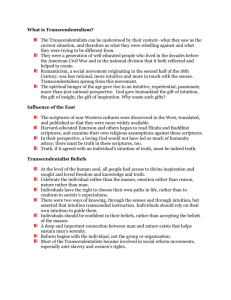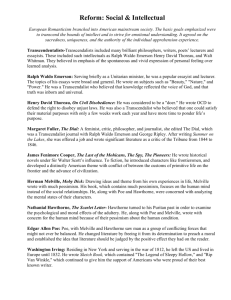The American Renaissance
advertisement
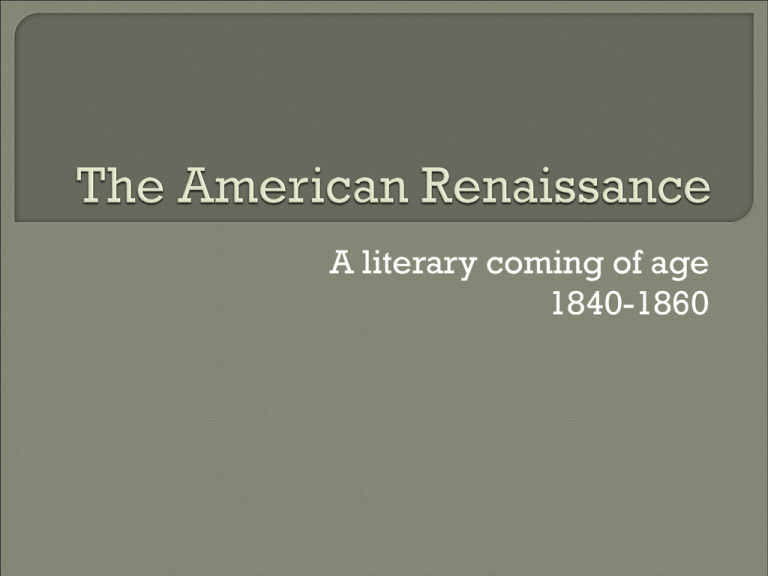
A literary coming of age 1840-1860 In the mid 1800’s, it was not clear whether America would ever produce a writer as good as William Shakespeare. Nathaniel Hawthorne and Herman Melville thought that we could, and wrote that Americans should support American authors. In the mid 19th century, writers like Hawthorne, Melville, Ralph Waldo Emerson, and Henry David Thoreau produced some of the early masterpieces of American Literature. The Americans called this time a renaissance, comparing it to the European Renaissance (a period of tremendous artistic and intellectual growth). It was really more of a “coming of age,” as America was finally finding ways to compare to other literature around the world. Much of this burst of American literature can be attributed to a focus on self-improvement and intellectual inquiry taking place in New England. Ralph Waldo Emerson was one of the primary forces behind this flowering of culture. He helped inspire numerous reform movements that aimed to improve public education, end slavery, elevate the status of women, and generally improve social conditions. Numerous utopian projects were developed in the 1840’s – plans for creating a perfect society. Emerson belonged to a club of Transcendentalists. Transcendentalism was based on the philosophy of idealism, as well as the ideas of previous American thinkers. Transcendentalists viewed Nature as a doorway to a mystical world holding important truths. Everything in the world (including human beings) is a reflection of the Divine Soul. The physical facts of the natural world are a doorway to the spiritual or ideal world. People can use their intuition to behold God’s spirit revealed in nature or their own souls. Self-reliance and individualism must outweigh external authority and blind conformity to custom and tradition. Spontaneous feelings and intuition are superior to deliberate intellectualism and rationality. Emerson believed in the power of intuition. • Intuition is our ability to learn directly without conscious use of reasoning. He emphasized the importance of each individual. He had an optimistic outlook – he believed that each of us could access God and do the right thing if we trusted ourselves and not society. The flip side to Emerson’s optimistic coin came in the form of the Dark Romantics – Melville, Hawthorne and Edgar Allan Poe. These writers acknowledged the existence of sin, pain, and evil in human life.
